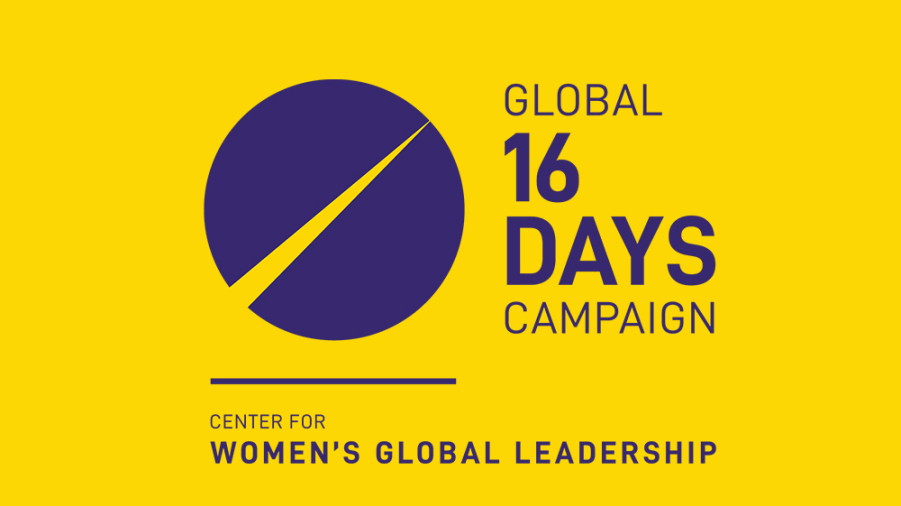The Global 16 Days Campaign began in 1991 and was launched at the Center for Women’s Global Leadership (CWGL) on Rutgers University’s Douglass Campus. It spans 16 days, from the International Day for the Elimination of Violence Against Women (November 25) to Human Rights Day (December 10). Twenty-four years later, this campaign has become a global action that brings together citizens, scholars, and institutions worldwide.
This initiative originated from feminists and civil society to assert women’s rights as human rights, and specifically to recognize violence against women as a human rights violation. According to Charlotte Bunch, founder of the Center for Women’s Global Leadership at Rutgers University and an activist who participated in the campaign’s origins alongside a small group of feminists, #16Days has become the largest feminist movement engaging society. It represents worldwide recognition of the need to continue working to eradicate violence against women in every country.
On November 20, I had the opportunity to hear her testimony along with that of other feminists, scholars, and activists during the Rutgers University seminar on the Global 16 Days Campaign Against Gender-Based Violence, which was dedicated to Gender Apartheid. Among the speakers were Melissa Upreti, Bahar Ghandehari, Moni Rani Das or Lisa Davis. The latter addressed the specificity of apartheid crimes and the demands from international feminism to grant them legal recognition when they are based on gender. She discussed this issue by referring to crimes against humanity, specifically Article 7(1)(h) of the Rome Statute of the International Criminal Court. This reflection raises questions about the current persecution of women and groups across countries, including the denial of freedom of assembly, movement, education, and other human rights violations.
For more than two decades, the 16 Days Campaign has taken diverse forms in different contexts and countries, through a process of co-creation among various social actors, academia, and civil society. This is likely part of the secret behind its success and global expansion. International institutions such as UN Women have incorporated it into their annual campaigns, encouraging everyone to take action in many ways—this year under the theme: “End digital violence against all women and girls.” During these 16 days, we can link the campaign to activities organized by our associations, companies, universities, public administrations, and schools. Individually or collectively, we can also act by wearing or displaying the color orange as a symbol of hope and a future free from violence, or by participating on social media and joining the 16 Days conversation using #NoExcuse and #ACTtoEndViolence.
Former Dean of the Faculty of Political Sciences and Sociology at the Universitat Autònoma de Barcelona; she is currently a Visiting Academic at the School of Social and Political Science at the University of Edinburgh.


